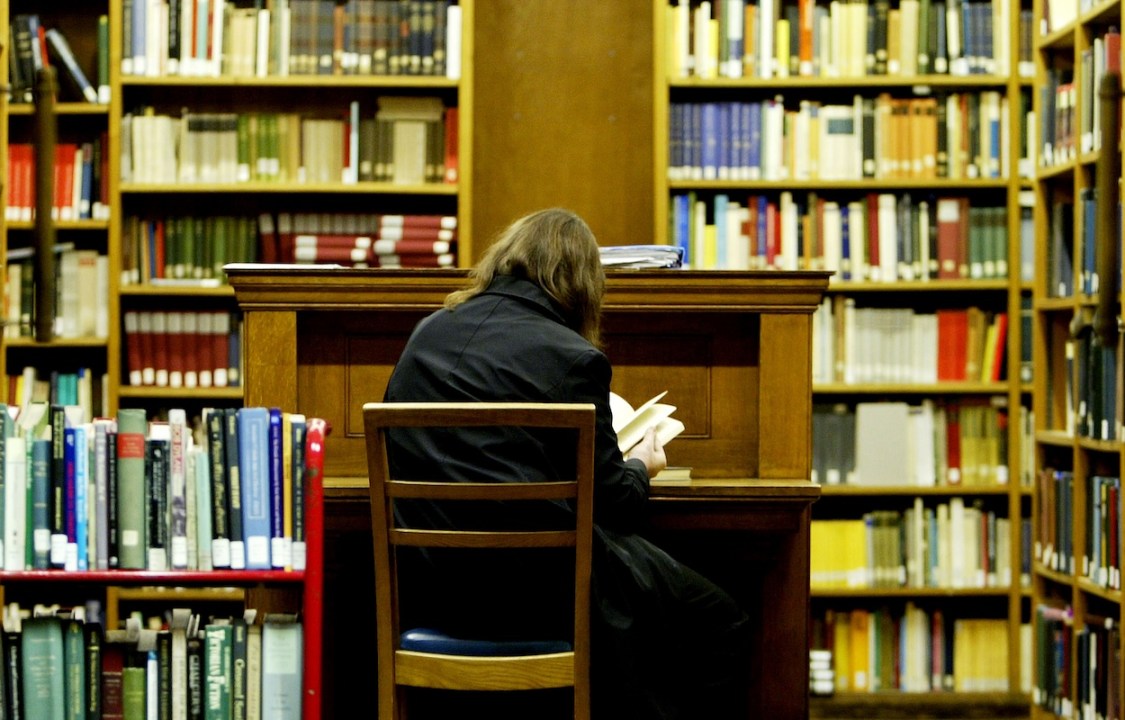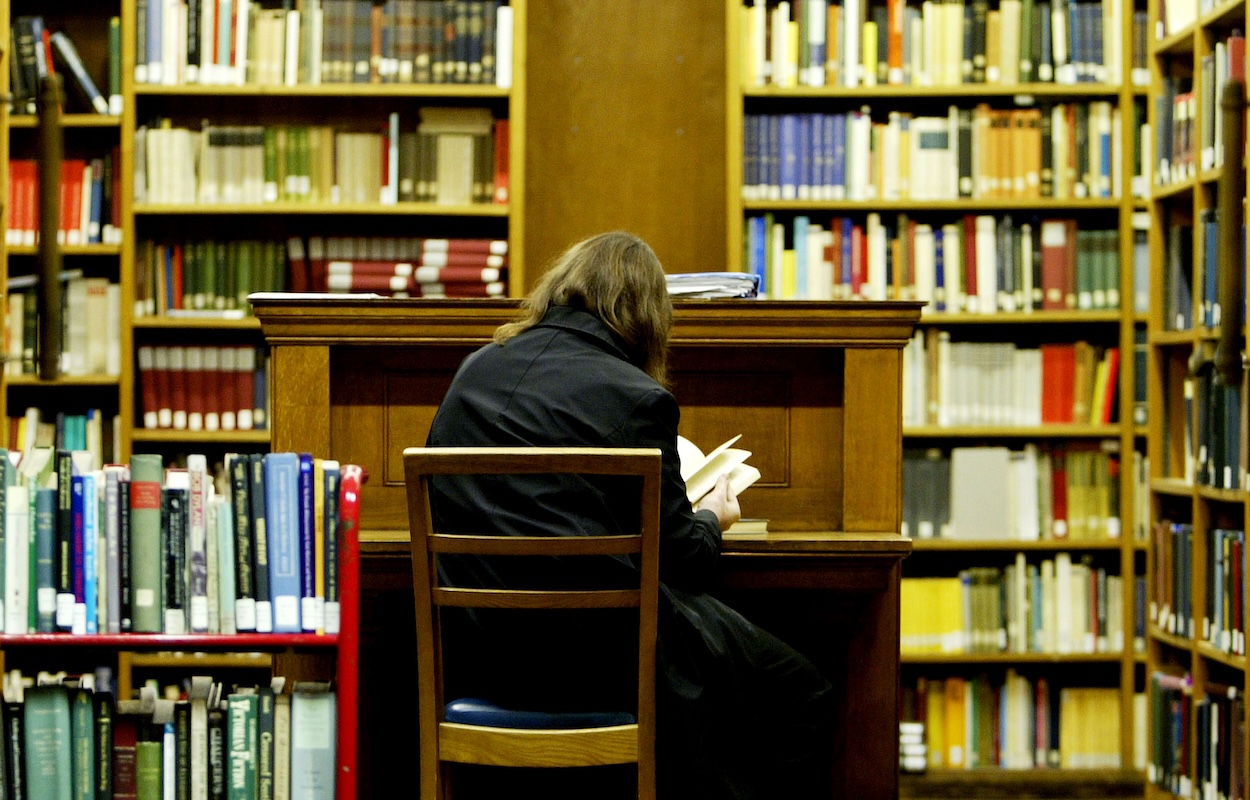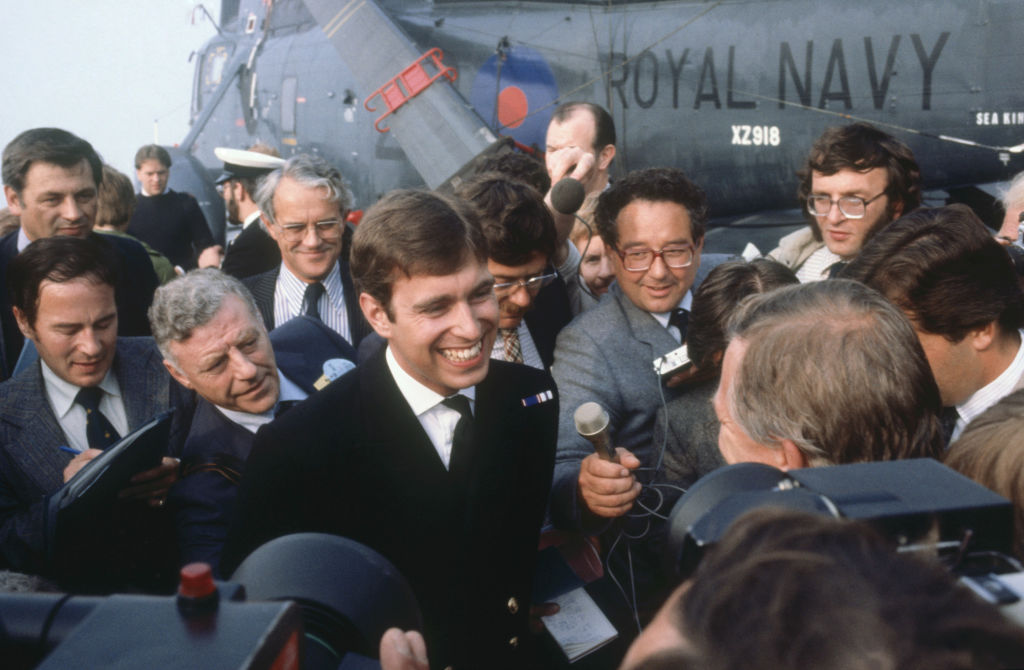The recent commemorations surrounding the 150th anniversary of John Buchan’s birth – not least in The Spectator – have stirred up literary memories for me. Not of Buchan or his work particularly, I was a little too old for the glaring coincidences of The Thirty-Nine Steps when I read it in my twenties, but of a lifelong Buchan-admirer I knew slightly, the late author Peter Vansittart.
Unlike many, Vansittart, a historical novelist among other things, took Buchan seriously, extolling ‘the romantic… the novelist, the adventurer… tolerant and humane.’ Buchan’s The Three Hostages he read every year, he said, as a kind of ritual: ‘curtains drawn, telephone unhooked, the fireside, the whisky, the old delight.’ Dick Hannay’s opening words in Greenmantle – ‘I had just finished breakfast and was filling my pipe when I got Bullivant’s telegram’ – were for him as exciting as anything in Sherlock Holmes. One way or another, Buchan seemed to have run like a thread through Peter’s life.
It was a life I caught the tail end of, meeting Peter when he was well into his seventies – a tall, tweed-jacketed figure with ramrod-straight back and an impossibly posh voice – redolent of the 1930s Third Programme. But for the wearing of an incongruous yellow hairpiece, he looked just like the ex-schoolmaster he was. At his Belsize Park house, where he spent half his time and let rooms dirt-cheap to the indigent, I’d visit him regularly – a kind of monthly tutorial – and pick his brains about the past.
Vansittart was a walking compendium of literary life, and generous with his time and knowledge. Born in 1920, he’d rubbed shoulders with Dylan Thomas, Graham Greene, interviewed George Bernard Shaw, taken tea with Lord Alfred Douglas, and done book reviews for Orwell, even standing in for the great writer on his ‘As I Please’ column when Orwell was otherwise disposed.
Possessing no TV, dedicated almost monastically to literature, Peter read and reread voraciously and had written more than 40 works – modern and historical novels, biographies, memoirs, children’s stories, along with anthologies on London, the first world war and the French Revolution. Often, he’d be writing several books at once, simply laying them out on the kitchen table, and moving his chair from text to text when one began to bore him – an excellent antidote, he said, to writer’s block. Even in his eighties, wrote critic D.J. Taylor, Peter’s ‘ferocious intellect was still burning unappeasably away.’
His book In the Fifties, a personal account of that decade, is still quite the best thing I’ve read on that decade, full of arresting lines, epigrams, and telling little insights on luminaries of the time. Churchill, he wrote, had ‘added to the juiciness of the English imagination.’ Noël Coward, though going out of fashion, would turn down the roles of Henry Higgins in Pygmalion, the Colonel in Bridge on the River Kwai and Humbert Humbert in Lolita. Graham Greene, in the fifties, reportedly gave a weekly stipend of £5 to the near-unknown Muriel Spark, ‘on condition that she did not pray for him.’
There were enjoyable quotes too, sometimes several to a page. The novelist Frederic Prokosch recalled the spy Guy Burgess, having studied with him at Cambridge: ‘He had long-lidded eyes and an insolent sensual mouth and he stank of sweat, gin, beer, urine and cabbage. He was the only man I’d ever met whom I disliked instantaneously.’ Rebecca West said being embraced by Ford Madox Ford was ‘like being the toast under a poached egg.’ The art critic David Sylvester, overhearing two doltish visitors at an exhibition he was running, turned on them savagely: ‘You are both absurd buffoons and understand nothing at all, least of all yourselves. As for Rembrandt, you can’t even spell his name. So bugger off, back to your damp cheese.’
In his book-lined, spartan sitting room at Belsize Park, with its wingback chairs and Atomic Age patterned curtains, Peter would offer more tailored insights. ‘All governments are awful, but they’re all awful in their own particular way… Good government is almost never exciting government.’ ‘The art of life is turning personal disasters to your advantage.’ ‘Don’t worry about pastiching a favourite novelist. All of us have to imitate those we admire on the way to finding our voice.’
Perhaps the most sobering lesson he taught, though, was unwitting and inevitable: that you could be a supreme master of your craft and impeccably connected (Peter knew everyone) yet never quite break through. ‘My novels,’ he once observed, ‘have been appreciated, if not always enjoyed, more by critics than the reading public, which shows no sign of enjoying them at all.’
I too didn’t much enjoy his novels – finding them cryptic and over-challenging – but loved his more factual books. To a young man in need of guidance, there was much that was of use. Like Kundera, Peter knew that ‘things are much more complicated than you think,’ that we are not all of a piece, that ‘what should happen, seldom does.’ His own scepticism had developed suddenly in childhood when, visiting Father Christmas’s grotto in a department store, he’d found two white-haired drunks in Father Christmas costumes slugging it out over ‘rights of pitch.’
I am a ‘perhaps’ man. I cherish ‘perhaps’ as civilised and civilizing
This kind of thing not only led to a wry, sly sense of humour in adulthood – his books are often anarchically funny – but also a sharp eye for things not being what they seemed or wished to appear. He loathed the banality of political correctness – ‘the tyranny of mediocrities over each other… Designed to enforce compassion, it invites ridicule’ – and had a sharp nose for cant. At a lunch he recalled, the Marxist theatre critic Kenneth Tynan ‘lectured us on the wide range of children’s rights prevalent at the Moscow Children’s Theatre, affecting not to hear a question from Patrick O’Donovan about the range of adult rights on the streets outside the theatre.’ Modish 1950s thinking left Peter unimpressed. ‘Existentialism – self-assertion, the struggle against the hell of other people, manifest will – could be used as an excuse even by waiters grown rich on bad service, by pretty girls who arrived late or not at all.’
At my own callow statements, he would, ever the ex-teacher, raise an indulgent eyebrow, and gently crush my certainties with his favourite word. ‘I am a “perhaps” man,’ he wrote in Paths from a White Horse, his autobiography. ‘I cherish “perhaps” as civilised and civilizing… It suggests alternatives to the neutral and conventional, the despotic and disgusting.’
There is so much more one could write about Peter – he was almost a one-man university – and so many other aspects to describe. How tetchy and forbidding he could be when the writing was going badly, and how correspondingly keen to make amends when the moment had passed. His inability to drive, and the ten-mile walks he’d willingly make to Sudbury railway station from his country house in Kersey, Suffolk, savouring the landscapes and smells as he tramped the fields. His grief at being a literary survivor – ‘I’m feeling rather bereft at the moment,’ he told me in Daquise restaurant, ‘Dear friends keep dying,’ his voice wobbling and one hand clutching the middle finger of the other tightly as he said it, to prevent his breaking down.
But like any other writer, he should be read. Here he is – taken almost at random from In the Fifties. Amid the descriptions of Soho, Bergman, Beckett, French Stalin-worship, progressive education, the hunt post-Holocaust and God, is a characteristic anecdote:
I had a friend who was a sci-fi writer, prolific, though unreadable. He very generously gave me his novels, several a year, which guaranteed me a small unearned income at the local bookshop. Our friendship ceased in 1955 when, again, a thick expensive book arrived. I read a page, decided that it was not a novel, then hastened to the bookshop. Next week, he and his wife invited me to dinner, and I rashly congratulated him on his autobiography. ‘Malcolm … it rang so absolutely true … honesty … self-revelation … so much that I’ve always suspected …’ The atmosphere changed to frost, a look of hatred from the wife, a bright scarlet flush upon Malcolm. With a muttered excuse, I slunk into his study and opened the book. It was not an autobiography, nor indeed science fiction, but a novel about an impotent man.








Comments